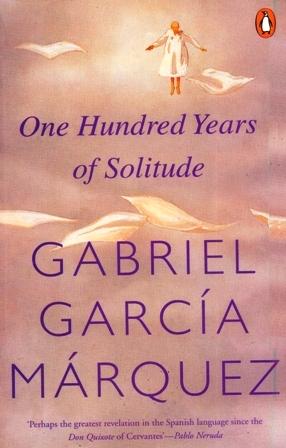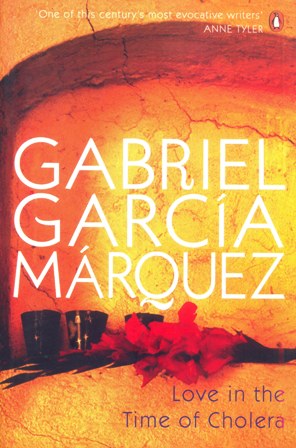-
One Hundred Years Of Solitude
One Hundred Years Of Solitude presents the life and times of the members of the Buendia family. The story is narrated is a non-linear fashion, i.e., the time frames and events are not arranged in chronological order. It spans seven generations of the family. The book is set in the city of Macondo, which was founded by the patriarch of the family. It presents a metaphorical picture of Colombian history. The book begins with José Arcadio Buendia, who leaves his home in Riohacha, Colombia, with his wife Ursula. Together they set out in search of an improved life and a new place to call home. One night, while they are camping on the banks of a river, José dreams of a city full of mirrors that reflects the world outside and within it. He takes it as a good omen and decides to establish such a city on the riverbank. He names the city Macondo and gradually shapes it to match his perceptions. Macondo turns out to have a mythical, magical quality that brings unusual events in its wake. These extraordinary events have a profound influence on the following six generations of the Buendia family. The adventurous spirit of the Buendia clan places it right in the midst of several significant historical events of Colombia. Youth, love, lust, senility, wealth, poverty, war, passion—the book weaves a rich tapestry of emotions and experiences that span the length and breadth of every humans’ life. In keeping with Márquez’s trademark literary style, the story blurs the lines between the magical and the mundane. Solitude, incest, and the fluid nature of time are some of the prominent themes explored in the book. One Hundred Years Of Solitude was first published in Spanish in the year 1967. Since then, it has sold over twenty million copies, and has been translated into 37 languages. It has received global acclaim and won several awards. It even earned Márquez the Nobel Prize for Literature in the year 1982. The credit for the English translation goes to Gregory Rabassa. This particular edition of the book was published in 1996.
-
Love In The Time Of Cholera
On the Garibbean coast at the dawn of th etwentieth century hopeless romantic Florentino Ariza falls passionately for beautiful Fermina Daza - but tragically his love is rejected. Instead Fermina marries distinguished Dr. Juvenal, while Florentino can only forget her in the arms of other women. Yet fifty-one years,nine months and four days later. Florentino has another chance to profess his enduring love for Fermina when her husband unexpectedly dies in a bizarre accident. Can a love over half a century old remain unrequited? About the Author Gabriel García Márquez was born in Aracataca, Colombia, in 1928. He has written a great number of books, including the masterpiece One Hundred Years of Solitude, and was awarded the Nobel Prize for Literature in 1982. He now lives in Mexico City. Márquez studied at the University of Bogotá and later worked as a reporter for the Colombian newspaper El Espectador and as a foreign correspondent in Rome, Paris, Barcelona, Caracas and New York. His first full-length work, One Hundred Years of Solitude, was published in 1967 to immediate worldwide success. The book is perhaps the prime example of Márquez’s remarkable ability to present the supernatural as mundane and the mundane as supernatural. It chronicles the history of a family in the fictional town of Macondo – the loves, hates, rivalries, wars, successes and failures. The novel is an example of postmodernism, treating time with ambiguity and crossing genres and narrative styles. Salman Rushdie has described the book as “the greatest novel in any language of the last fifty years”.


